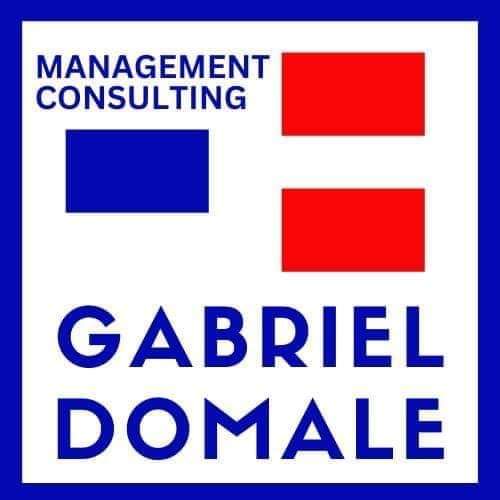WHAT WE DO

Operations - Finance and Accounting
We provide independent advice, covering all areas of Operations - Finance and Accounting;
Governance, Risk & Compliance
Effective governance and transparent disclosure help to build trust.
Strategy and Planning
Financial Planning; Strategy; Governance; Advisory.
Training & Coaching
Right knowledge leads to competitive advantage.
Cost Reduction
Cost reduction strategy is key for survival.ABOUT US
Gabriel Domale Consulting, a leading management consulting firm, helps companies in Africa to grow, provides insights to leaders and transforms institutions.
Our consultants utilize their decades of hands-on experience to provide advisory in finance, strategy, corporate governance, transformation and leadership training to help companies and public institutions to transform their operations.
We encourage leaders seeking insights to visit our Insights and also Request For Proposal (RFP) for our consulting services - Submit RFP
Our Value Propositions
We collaboratively work with finance leaders to make crucial decisions and optimize performance through financial excellence in finance systems and accounting operations, budgeting, finance transformation, cost reduction, governance, risk, and compliance.
We also help business and finance leaders and their organizations to identify growth opportunities and create value through operational excellence in strategy implementation and capital efficiency by delivering projects within costs, building strategy and planning frameworks and crafting of innovative funding solutions.
PROJECT DELIVERED
Gabriel Domale Consulting - Management Consulting Company in Nigeria
Gabriel Domale Consulting, a leading management consulting firm, helps companies in Africa to grow, provides insights to leaders and transforms institutions. Consultancy, finance, strategy, corporate governance, transformation and the public sector.
Gabriel Domale Consulting, Management Consulting, Consultant, Strategy Consulting, Business Consulting, Financial Consulting, Port Harcourt, Rivers State, Nigeria, Africa, Finance, Value For Money, Taxation, Audit, Strategy, Contracting Strategy, Budgeting, Planning, Performance Management, Merger Acquisition, Due Diligence, Deal Advisory, Governance, Risk, Compliance, Leadership Training, Human Capital, Chief Financial Officer, Non-Executive Director, Executive Search, Transformation, Cost Reduction, Facilities Management, Digital Data Analytics, Public Sector, Oil Gas, Construction, FMCGs, Hospitality, Technology, Financial Services. SME, Venture Capital, Agriculture.
Environmental Strategy As A Driver Environmental strategies may arise as a response to social pressures to gain legitimacy from environmental stakeholders. In fostering good environmental management, it is important that the organization identifies and demonstrates ‘good citizenship’ behavioural imperatives with the host communities that the firm operates. Environmental management activities include pollution reduction and control; reduction of toxic emissions, control of waste, and biodiversity. Environmental management activities will cost the firm although the costs can be transferred to the public through better reputation and image which attracts customers and employees. Markets create incentives for environmental control activities. Internal and external factors may influence environmental control activities and the behaviour of managers in charge of these activities. By investing in good environmental policies, the firm reduces compliance and liability costs, improves the bottom-line and market share, while enhancing both the tangible and intangible assets. Different environment regulations and market reactivity across different regions may lead to different pay off to environmental initiatives. It is important to evaluate the effectiveness of environmental management from the perspectives of firm profitability, and societal/governmental regulations. Firms involved in environmental management could be split into two major blocks: (i) green compliant firms – focusing on full compliance with relevant regulations and policies and (ii) environmentally pro-active firms – seeking to achieve abnormal returns through green investments. Taking a resource-based perspective on corporate environmental performance, it can be argued that the level of industry´s growth moderates the expected probability of returns. However, in low growth industries, the adoption of new policies (related to environmental conditions) would be difficult, as they require a loosening of organizational structures and norms. The expected payoff of any environmental investment risk tends to be higher in high-growth industries as they generate the type of innovative culture that facilitates pollution prevention as the structure allows for slack resources to be invested in environmental improvements. It pays to be environmentally responsive because reducing emissions increases efficiency and saves money, giving firms a cost advantage. However, pollution abatement is a cost burden on firms and it can be detrimental to competitiveness. Gabriel Domale Consulting develops frameworks that enable managers to implement their company’s pollution prevention strategy to cut pollution well below the levels required by law, reducing the firm’s compliance and liability costs. Consistency in implementation is required as there tends to be a long lag between pollution reduction and impact on return on equity (ROE). This may be due to ROE reflecting operating efficiency and capital structure with confounding effects on return on sales (ROS) and return on assets (ROA). The other factor is that the environmental profile of a company has an effect on its liability exposure, reputation, and market share. The general observation is that efforts by companies to prevent pollution and reduce emissions usually drop to the ‘bottom line’ within one to two years of initiation. And that those firms with the highest emission levels stand the most to gain. Your company’s environmental strategy can be achieved either through reduction or control mechanism. I encourage companies to adopt a win‐win view of the relationship between business and the environment. The consensus is that talk is cheap but environmental efforts are not.


